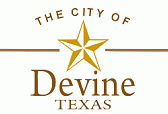
Members of the Parks Advisory Board elected officers and listened to a presentation by Judy Langford of Langford Community Management Services at their inaugural meeting held Wednesday, Sept. 6.
After Mayor Bill Herring called the meeting to order, District 4 representative Jennifer Schott was unanimously elected as Chairman and took over running the meeting. District 1 representative Albert Garza was elected Vice-Chairman, and District 5 representative Debra Randall was elected Secretary. Both choices were also unanimous.
District 2 rep Linda Gunn and District 3 rep Mary Allison were also in attendance.
Herring, Interim City Administrator Dora Rodriguez, City Attorney Tom Cate, Public Works Director Ismael Carrillo, and City Council members David Espinosa and Kathy Wilkins were present in the audience.
Cate reminded the board that meetings must be held and conducted in accordance with the state’s Open Meetings Act, and provided each member with a handout on the law.
“One of the main things about the Open Meetings Act is that you conduct your business inside the meeting, not outside the meeting,” Cate said. “That doesn’t mean that you can’t investigate something that’s of interest to you or something that’s of importance to you. You can investigate that, but then you can’t get on the phone and call your fellow members up and say ‘Hey, this is what I found out.’ You need to have that discussion in the open meeting.”
Allison asked if speaking to a single fellow board member would violate the Open Meetings Act, since in the case of the five-person Parks Board, three members are required to constitute a quorum.
“What you have to be concerned about is if you talk to one person and then that person talks to another person,” Cate said. “It’s called a walking quorum.”
Cate added that it would be fine for all the members to attend a football game, for example, as long as they didn’t discuss City business.
Langford provided the board with copies of the Texas Parks & Wildlife’s priority scoring system for the Non-Urban Recreation Grant that City Council voted to pursue at a meeting on July 24.
Langford explained the makeup of the non-urban grant, which is a one-to-one match up to a total of $500,000.
“So for every two dollars you put in, they give you a dollar back,” Langford said. “With Parks & Wildlife you have to expend the monies, and once you’ve expended them, you send in all the documentation, they send you fifty percent of those funds back.”
Langford said that it was important to understand the scoring system and tailor applications to receive the highest points possible in order to be competitive. Fifteen points are available for having a master parks plan – five for having a master plan, and 10 for submitting a grant application that includes three of the top five priorities in the master plan.
City Council approved the master parks plan in 2013, and approved an amended version at the July 24 meeting. The City’s grant application includes plans for a splash pad, a half-basketball court, and a hiking/biking trail, all of which are top five priorities.
Other point-scoring aspects of the grant include recreation diversity, geographic distribution, local resources and partnerships, renovation and adaptive reuse, underserved populations, sustainable park design, TPWD goals, compliance, and application materials.
According to Langford, the area where the City can separate itself from other applicants is in local resources and partnerships, by generating the support of the community and getting monetary donations and volunteer labor.
“I’ve seen parks boards do awesome jobs at coming up with match from other folks,” Langford said. “They go out and hit the streets and get folks to sign up to do it.”
Langford thought it unlikely that the City would be awarded the TPW grant for this funding cycle, but that submitting an application would still be beneficial because it would allow Council and the Parks Board to gauge where they stood in relation to other applicants and what they needed to do to improve.
If the City submits an application and is awarded the grant, Council can refuse to accept the money without being penalized by TPW. The City would only be penalized by accepting the grant and then not following through with park additions and improvements.
Langford then spoke about the possibility of a public pool.
“A brand new swimming pool for a municipal pool is going to cost you somewhere, usually, between $1 million and $1.5 million,” Langford said.
The former public pool, which was built in 1970 and sold to Fred Morales of the Devine Swim Club, Inc., has recently been offered back to the City.
“I’m a big swimmer, I like to see children learn how to swim, but it’s costly, and you’re never going to make money on those pools,” Langford said.
She pointed out that Morales’s pool is on a small piece of property, and that the pool itself is small and was in poor condition when the City sold it.
“Renovating the pool is going to cost you a lot of money,” Langford said.
Rodriguez said that the City last had the pool inspected in 2008, and at that time, it needed at least $140,000 of repair.
Spending over $50,000 moves the work from the category of maintenance to renovation, and in that case, the pool would have to be made compliant with the Americans with Disabilities Act (ADA).
The cost of making the pool ADA-compliant would be in addition to the repairs that already needed to be made.
Schott volunteered to get permission from Morales to have the pool inspected by the City’s insurance carrier to get an idea of some of the repairs that need to be made., with results to be discussed at the next meeting.
The next Parks Board meeting is set for Sept. 13 at 6:00 pm.
By Marly Davis
Staff Writer
